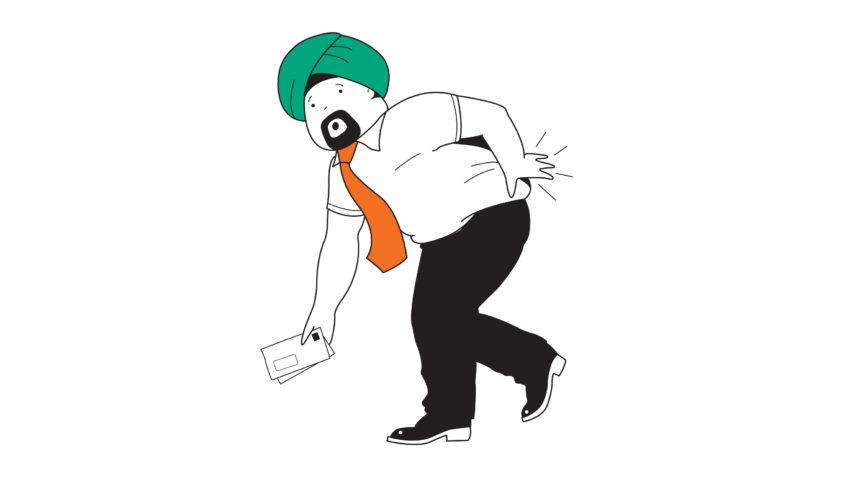
Your back is an important muscle in your body. It has a level of strength and flexibility to carry you through your day that is phenomenal – however, because of this, it is also susceptible to problems. This week is back care awareness week so here at Health Shield we wanted to ensure you knew some top tips on taking care of your back.
When you develop problems in your lower back, this can extend to your legs and hips, so protecting your back is important. More and more people are experiencing back pain, but it is normally manageable and can improve within a few weeks or months.
Many find they suffer from back pain in a workplace through sitting at a desk for long periods of time, heavy lifting or driving, but there are many things that could be done to help you prevent injury or pain. The muscles and ligaments stretch a lot and any excessive movement can cause tears, tissue damage and even muscle strain. More and more people are spending increasingly long hours at work so ensuring you do all you can to contribute to good back care is vital.
Prevention
There are a number of things that you can do to prevent lower back pain:
- Keep a strong core – doing regular exercise on your core will be a big benefit, having strong core muscles helps to provide additional support to your back. To do this you can take part in low impact cardio exercises such as walking or you can do more concentrated core exercises with a variety of sit-ups, plank, glute bridges, and superman stretches. If this seems too steep for you, begin with simply climbing the stairs a handful of times in succession or perhaps a weekly swim, cycle or yoga class.
- Keep a good posture – if you suffer with bad posture, it can increase the pressure on your back. It is important to ensure that you keep the natural curve in your back and set yourself a reminder to take a break away from your desk to help your posture throughout the day.
- Ensure you are correctly lifting heavy objects – It does not matter what age you are, you can still cause injury and damage if you are not lifting heavy objects correctly. Your workplace should be able to offer you training in correct lifting and carrying techniques.
- Keeping a check on your overall physical health – The condition of your spine reflects the overall condition of your body. Ensure you are drinking at least 2 litres of water a day, taking part in the recommended 30 minutes a day of exercise, eating a healthy diet and avoiding smoking and excessive alcohol. Losing any excess weight will also have a positive impact on the amount of pressure on your back.
- A little known cause of lower back pain, is having tight hamstrings. Tight muscles can apply increased pressure to other areas of the body.
- Your bed is vital in the care of your back – Having a good mattress that provides the correct support and comfort for your back can help manage stress. Stress is a big factor in back problems.
Everyone would associate back pain and back problems with adults, but did you know that nearly a quarter of high school students are also suffering? It is important to take care of your lower back from an early age, the earlier you help yourself the less likely you are to have problems in later life.
I have back pain – what do I do?
Sometimes you are able to manage the pain at home yourself, but it is recommended to visit your GP if this is not the case.
Bed rest for a back problem has been known to cause more harm than good. Some experts are advising that keeping moving might be preferable because it means that your back muscles don’t weaken and stiffen.
- Heat and ice – depending on the type of back pain some experts are recommending heat packs or ice packs are applied to the troubled area as it can help
- Comfortable resting positions – when you do need to rest ensuring you are comfortable makes a big difference in the management of pain.
There are some causes of back pain that will require professional treatment, and sometimes a known cause can never be found. Conditions such as a slipped disk or sciatica have different symptoms and are treated differently.
If you are suffering with long-term back pain, it may be a good idea to visit a physiotherapist. If you’re a Health Shield member you could use your membership plan to claim the cash back for this treatment*. A physiotherapist may suggest additional exercises and support to help you manage the pain and strengthen the muscles in your back.
Health Shield also now offers a service with physiotherapy provider Physio Med. This is a physio triage service with qualified therapists around the UK helping you to recover from musculoskeletal injuries and reduce absenteeism.